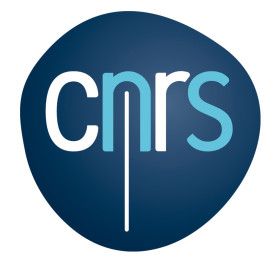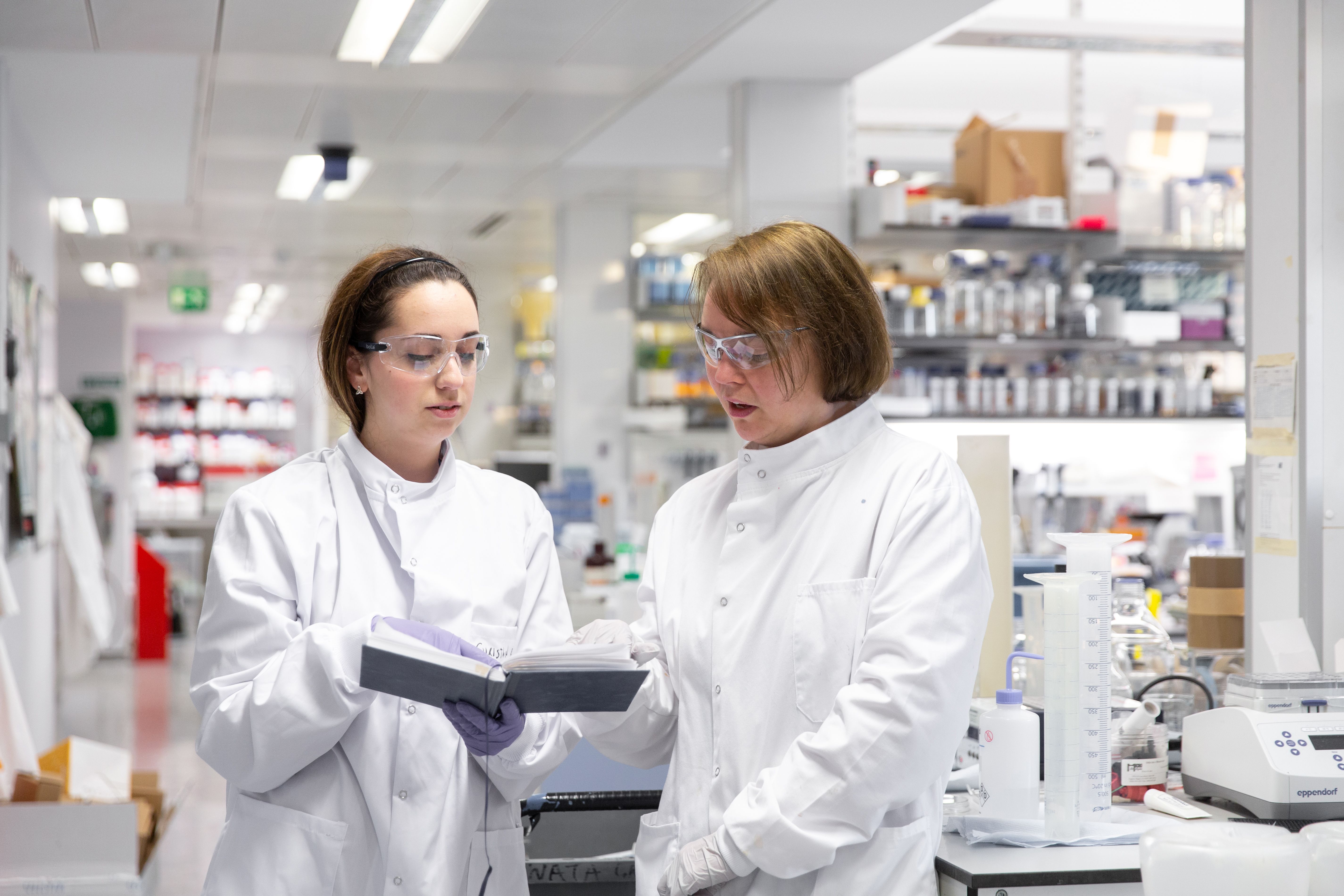Imperial - CNRS Joint PhD Programme Call 2025 - Apply now
Imperial and the Centre National de la Recherche Scientifique (CNRS) recognise that collaborative international activities enable cross-border pooling of research capabilities and sharing of expertise and facilities, the opportunity to appreciate different perspectives, outputs that are typically more highly cited, as well as access to new environments for impact and exploitation of research outcomes.
CNRS and Imperial are launching a sixth joint call for collaborative PhD proposals between the two institutions. The theme for this year’s call supports in particular the three pillars of the CNRS-Imperial International Research Centre for Transformational Science and Technology: Sustainability, Connectivity, Health. The call is intended to be open to all areas of science, technology, engineering and medicine but to focus projects in one or more of the IRC’s three challenge areas. The aim is to develop collaborative PhD projects that can train and network the next generation of researchers and innovators, offering them expertise not available at just one institution, and to also seed Imperial-CNRS collaborations that can lead to Horizon Europe and other funding opportunities.
Imperial and CNRS now have 26 collaborative projects and over 50 PhD students registered with the collaborative PhD programme, working on high-impact UK-France projects.
This call invites Principal Investigators at CNRS and Imperial to jointly put forward a research project to be underpinned by x1 PhD at CNRS and x1 PhD at Imperial, which includes joint supervision plans and a built-in mobility programme. Support for CNRS-Imperial cohort-building activities and relevant training will also be provided each year.
Strategic rationale
Imperial and CNRS researchers have co-authored 2,857 publications in the past 5.5 years (2019-2024) and worked together on 43 joint Horizon 2020 research consortia, with 19 additional projects started under Horizon Europe.
The CNRS-Imperial International Research Centre (IRC) for Transformational Science and Technology, launched in April 2022, is deepening and expanding connections between our two institutions to address UN Sustainable Development Goals. CNRS and Imperial will soon have six formal collaborations under the IRC umbrella. Current collaborations include the International Research Laboratory (IRL) in Mathematics – Abraham De Moivre; Imperial is the UK lead for the CNRS International Research Network in Quantum Fields and Strings; Imperial and CNRS have an International Research Project in Integrative Metabolism in collaboration with the University of Lille; CNRS and Imperial are collaborating on various approaches (physics, chemistry, and biology) to drive a transformation in cancer radiotherapy (LhARA International Research Network) and Imperial is part of the International Research Network in AdvancinG TechnOlogy, AppLications anD FundaMentals In Coherent NanosourcEs (GOLDMINE). In January 2025 CNRS and Imperial are launching a new International Research Lab in Engineering, the Ayrton Blériot Engineering Lab (ABEL).
The €95.5 billion Horizon Europe budget, which runs from 2021-2027, provides continued impetus for joint scientific discovery and innovation. The UK agreed a deal to associate to Horizon Europe on 7 September 2023. UK researchers can now apply for Horizon Europe funding, certain that all successful UK applicants will be covered through the UK’s association for the remainder of the programme. All calls in Work Programme 2024 and after are covered by association.
Apply here: CNRS-Imperial PhD joint Programme call 2025
Guidance
The model is for each collaborative project to have two PhD students and two supervisors, one of each at both Imperial and CNRS.
At CNRS the funding will be for a three-year studentship. Funds will include mobility costs for visits to London for the project over three years.
At Imperial, 50% of the funding for the three-year studentship (Home fee + UKRI London stipend) is allocated centrally, and additional funding is provided for mobility. The remaining 50% of the studentship must be allocated by the Imperial PI’s department or other funder (eg CDTs, DTPs, or other research groups, external funding). If a PI has more than 50% of the funding to contribute, then anything not needed for the studentship can be used for additional mobility, consumables, or other related costs to support the project. Given that 50% co-investment is required to apply, Imperial applicants must submit confirmation (an email is sufficient) of funding for 50% of a studentship from the person who is responsible for the funding source of the studentship e.g if using a department studentship allocation then submit a note from the HoD or similar, if using a CDT studentship then submit a note from the Imperial CDT lead, if industry funding, a note from the relevant person at Imperial or the industry partner, etc.
Number of awards
Up to three projects are expected to be funded jointly by Imperial & CNRS. Particular attention will be paid to projects addressing the three challenge areas/pillars of the IRC: health, sustainability, connectivity.
Support period
3 years
- Scientists from Imperial who can supervise PhD students;
- Scientists working in a research lab affiliated to CNRS holding an accreditation to supervise PhD students (HDR)
- A PI cannot submit more than one application in the framework of this call.
There must be one PI from Imperial and one PI from a CNRS laboratory. Those who do not already have a collaborator may consult Imperial’s website or the CNRS website to find information on the research groups and projects being carried out in either institution.
Open date: 25 November 2024
Closing date: 17 January 2025
Notification date: March 2025
Beginning of the projects: October 2025
Apply here! CNRS-Imperial PhD joint Programme call 2025
Proposals will be evaluated and ranked by an Imperial-CNRS committee according to the following criteria:
- Scientific quality & originality of the project
- Scientific merit of the teams
- Synergy between the teams, added value of international cooperation
- Convincing plan for engaging PhD students in the research and for managing joint supervision
- Projects are likely to be sustainable beyond the grant period
- Benefit to researcher based on her/his career stage
- Does the proposal clearly identify and support one (or more) of the three IRC pillars: health, sustainability or connectivity. See the diagram below for methods and topics that fall under each of the three areas.
The proposals should also include an outlined plan for raising external competitive funding.
Imperial applicants should submit in electronic format (Microsoft Word or Adobe PDF) to globalseedfunds@imperial.ac.uk;
CNRS applicants should submit the same file via the dedicated platform: https://noa.cnrs.fr/#/accueil (as several PhD Joint Programs are currently open for proposals, please make sure you select the correct call).
Click here to apply: CNRS-Imperial PhD joint Programme call 2025
For questions, please contact the following:
Imperial College London: Mrs Heather S. Kerst, h.kerst@imperial.ac.uk
CNRS: Mr Carl Ialamov, carl.ialamov@cnrs.fr
Contact Information
For more information on the Joint PhD Programme, contact:
Heather Kerst, Senior International Relations Manager (Europe)
Lucile Genin, International Relations Officer (Europe and Americas)
International Relations Office
Imperial College London
Faculty Building Level 2
South Kensington Campus
London, SW7 2AZ


